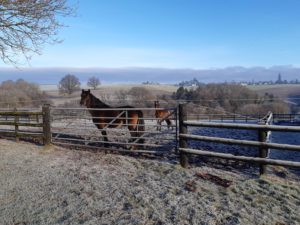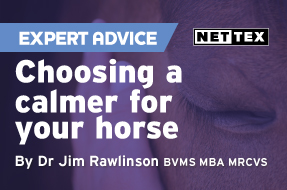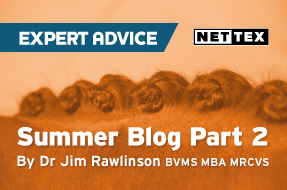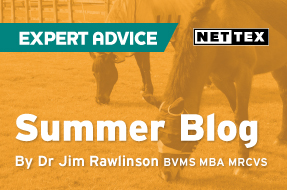Tips for weight management

Dr Jim Rawlinson BVMS MBA MRCVS
- Know your pony’s weight and monitor changes.
It can be hard to spot steady weight gain, especially if you see your horse or pony every day. That’s why regular checking of their weight is essential for spotting trends.
A weigh tape is a simple method and if done repeatedly, by the same person, will give a good indication of weight gain (or loss) over time. I do all my horses and ponies on the first of every month, all year-round.
2. Know how much you are feeding.
If your horse or pony is stabled for some part of the day, they will likely be receiving some extra food or forage. It’s easy to accurately measure out any hard feed, but with hay it’s hard to estimate how much is being fed and easy to end up giving too much. With my ponies, I use a simple handheld hay scale to weigh the nets when I make them up, so they get the right amount each day.
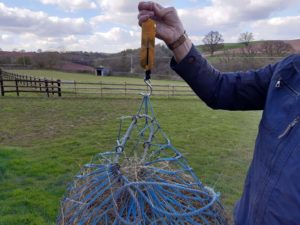
3. Do they need a rug?
Whether or not to rug will depend on many factors so every horse and situation will be different. But horses and ponies use calories to keep warm, so going without a rug, if appropriate, can help with the weight loss. I take the first opportunity to ditch the rug with my Welsh C “Good Doer”.
4. Grazing muzzles.
Grazing muzzles can split opinions, but they can be used to help with weight management in horses and ponies. The aim is to reduce grass intake, not to stop them eating and they must be able to drink when wearing one.
Remember, it is essential it fits well, your horse or pony should be supervised closely the first time one is used, and they should never stay on 24 hours. If you are not familiar with grazing muzzles, then it’s best to get expert advice before trying one.
5. Know the early signs of laminitis.
Laminitis is a very serious condition, and although linked to many factors, overweight horses and ponies on spring grass must be considered at risk. Don’t wait for classical signs to develop, any stiffness or reluctance to walk, heat in the feet, general lethargy or reluctance to get up should prompt a call to the vet for advice.
